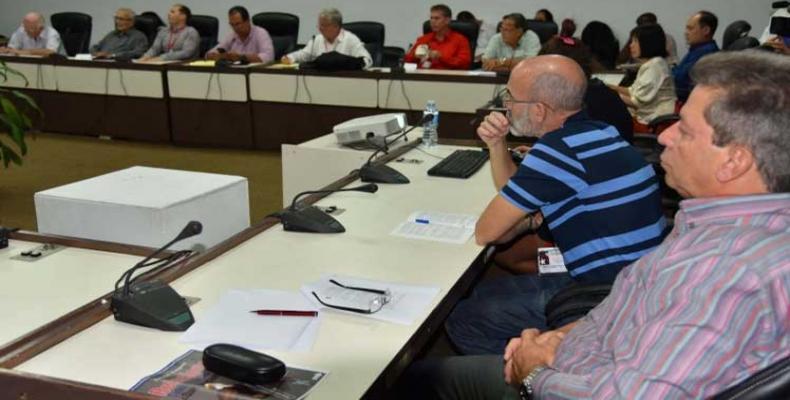Havana, October 31 (RHC)-- Fidel Castro's conception of unity, justice, and internationalism is the focus of debates on Thursday, the last day of the Third International Symposium The Cuban Revolution, Genesis, and Historical Development.
Cuban researchers agreed that fabricated pretexts, slander, pressure, aggressive rhetoric, and political blackmail are some of the elements that maintain a permanent confrontation in U.S. relations with Cuba, reports Prensa Latina news agency.
Rafael González, a researcher at the Center for Hemispheric and U.S. Studies at the University of Havana, argued his thesis on the policy of U.S. President Donald Trump.
" Trump is not moved by convictions towards any issue, or any country, nor even Cuba. He is only activated by interests and circumstances, and depending on these, he may play certain roles: he can be a great villain or an excellent negotiator," said González.
In describing the U.S. president's vision towards the island, he said there is a millionaire Trump period that extends from 2008 to 2015, another as the presidential candidate and, and another already being president.
"Initially, he said he would continue President Barack Obama's policies, but on September 16, 2016, he announced that he would reverse guidelines," the academic recalled.
"From January to August 2017, there was a partial retreat, Trump had to honor the commitments with the Cuban-American right, at the same time he resumed the anti-Cuban rhetoric and suspended the mechanisms of bilateral dialogue," said González.
Then came the moment of progressive deterioration, appearing the so-called sonic incidents, taken as a pretext for the dismantling of its diplomatic headquarters in Havana.
"Now Trump aspires to be re-elected and wants to captivate the electorate of Florida, hence the fight against socialism that includes Venezuela," said the researcher.
Fidel Castro's legacy at the center of final day of symposium on the Cuban Revolution


